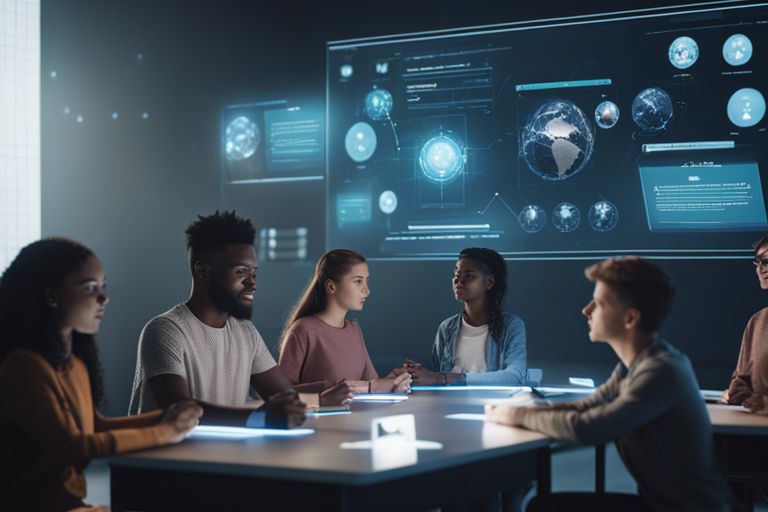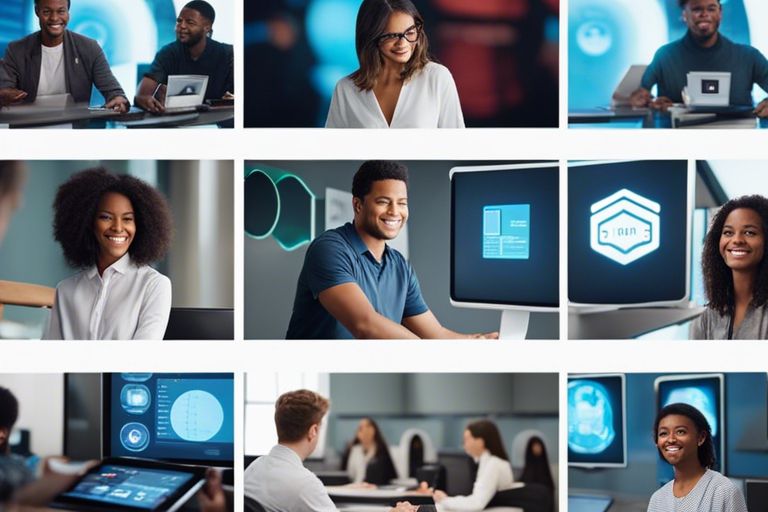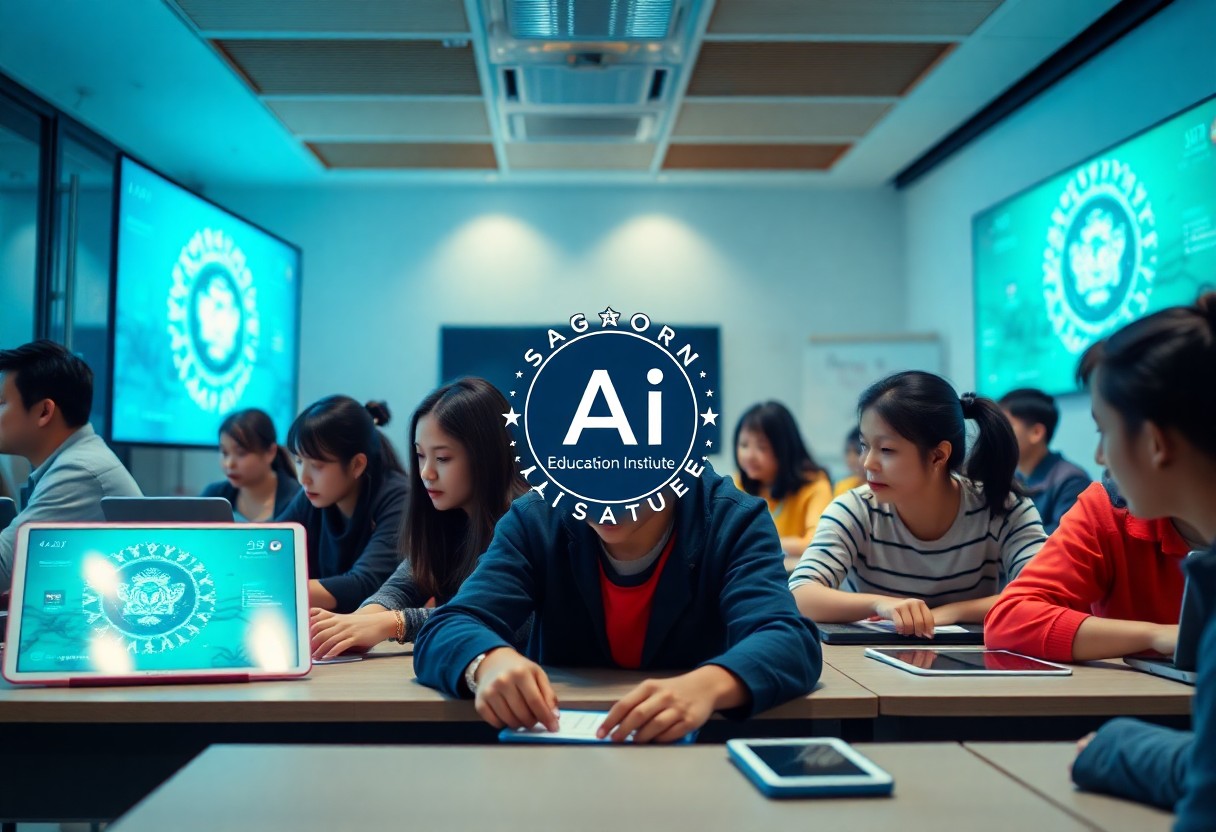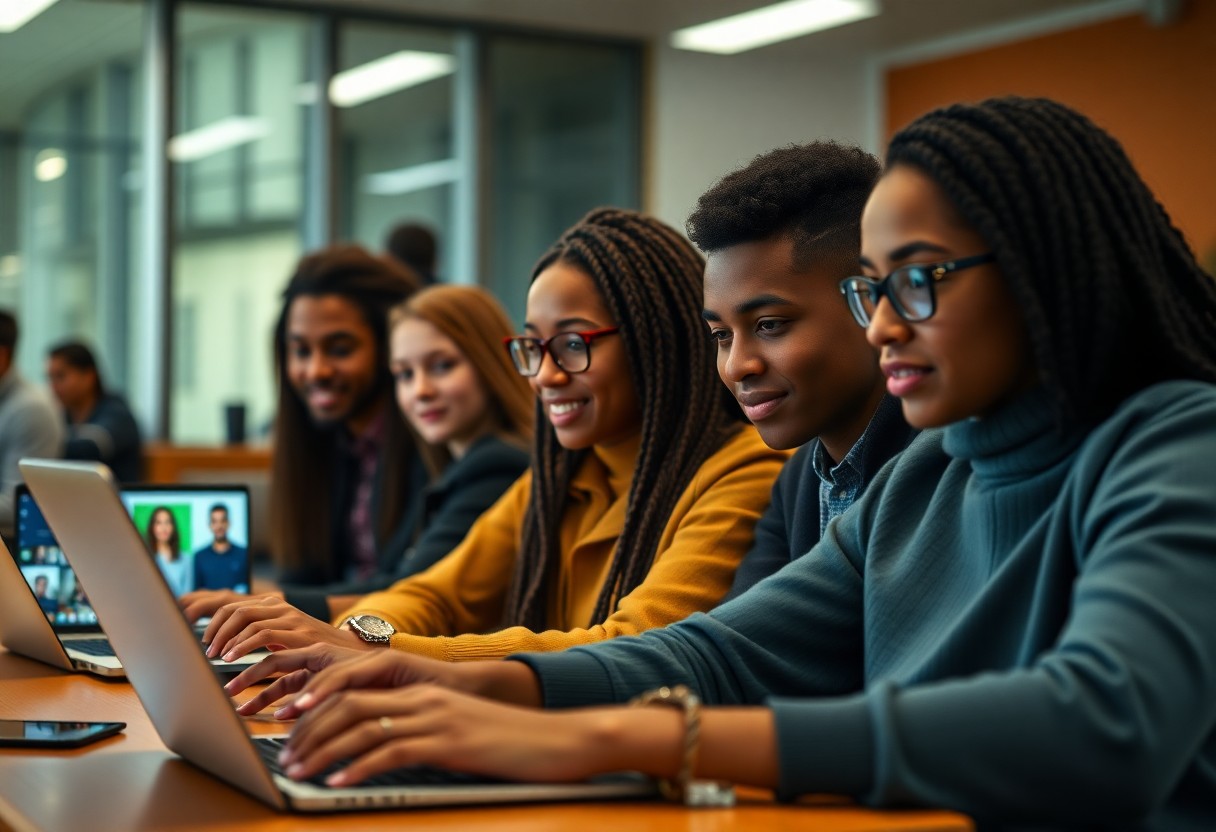AI tutoring is revolutionizing the way students learn by providing personalized and adaptive learning experiences. This innovative technology analyzes individual strengths and weaknesses, creating customized lesson plans that cater to each student’s unique needs. With the ability to offer instant feedback, track progress, and adjust teaching methods in real-time, AI tutoring is reshaping the future of education towards a more efficient and effective approach to learning.
The Rise of AI in Education
The Need for Personalized Learning
To meet the diverse needs of students in today’s educational landscape, there is a growing demand for personalized learning experiences. Traditional one-size-fits-all teaching methods often overlook individual differences in learning styles, paces, and preferences. AI tutoring has emerged as a solution to address this challenge by providing customized learning pathways tailored to each student’s strengths and weaknesses. By leveraging machine learning algorithms, AI tutors can analyze vast amounts of data to create personalized learning plans that maximize student engagement and comprehension.
The Limitations of Traditional Teaching Methods
Traditional teaching methods are constrained by factors such as limited resources, time constraints, and the inability to adapt quickly to individual student needs. This can result in students feeling disengaged, frustrated, and left behind in their learning journey. These limitations highlight the urgent need for innovative educational technologies like AI tutoring, which can offer personalized feedback, support, and instruction to students in real-time.
This disconnect between the traditional approach to education and the diverse needs of students has created a gap that AI tutoring is uniquely positioned to fill. With AI-powered tools, educators can provide immediate feedback, track student progress accurately, and offer targeted interventions to ensure each student reaches their full potential.
What is AI Tutoring?
If you’ve ever wondered how technology is revolutionizing the education sector, look no further than AI tutoring. AI tutoring refers to the use of artificial intelligence technology to provide personalized learning experiences to students.
Definition and Key Features
AI tutoring systems are designed to adapt to the individual needs and learning styles of each student, offering tailored lessons and feedback in real-time. These systems leverage machine learning algorithms and natural language processing to analyze student data and provide customized learning paths.
- Personalized learning experiences
- Real-time feedback
- Adaptation to individual needs
- Machine learning algorithms
The goal of AI tutoring is to enhance the learning process by identifying strengths and areas for improvement, ultimately helping students achieve better academic outcomes. The personalized nature of AI tutoring sets it apart from traditional one-size-fits-all teaching methods, making it a valuable tool in promoting student engagement and success. The potential of AI tutoring to revolutionize education as we know it is immense, offering opportunities for more inclusive and effective learning experiences.
How AI Tutoring Systems Work
What sets AI tutoring systems apart is their ability to analyze vast amounts of data to create personalized learning experiences for each student. By leveraging advanced machine learning algorithms, these systems can identify patterns in student behavior and adapt their teaching strategies accordingly. Features such as real-time feedback and adaptive learning pathways make AI tutoring systems highly effective in catering to the unique needs of individual learners.
Features like intelligent tutoring systems and virtual tutors are reshaping the landscape of education, offering students personalized support and guidance outside of the traditional classroom setting. The use of AI in tutoring not only enhances the learning experience but also equips students with valuable skills such as critical thinking and problem-solving. The potential for AI tutoring to revolutionize education is truly remarkable, signaling a shift towards more individualized and effective learning approaches.
Benefits of AI Tutoring
Enhanced Student Engagement
Some of the key benefits of AI tutoring revolve around enhanced student engagement. With personalized learning paths and real-time feedback, AI tutors can adapt to each student’s individual needs and preferences. This level of customization keeps students more engaged and motivated throughout their learning journey.
Improved Learning Outcomes
For students, one of the most significant advantages of AI tutoring is the potential for improved learning outcomes. AI tutors can analyze vast amounts of data to identify areas where students are struggling and provide targeted interventions to help them overcome challenges. With personalized recommendations and adaptive learning techniques, students can progress at their own pace and achieve better results compared to traditional classroom settings.
This focus on enhancing learning outcomes through personalized support is revolutionizing the education sector. Students who may have previously fallen behind in a traditional classroom setting can now access the additional help they need to succeed, thanks to AI tutoring.
Personalization in AI Tutoring
After exploring how AI tutoring is transforming education, it’s important to research into the key aspects that make personalized learning possible. Personalization in AI tutoring comes in various forms, from adaptive learning algorithms to real-time feedback and assessment.
Adaptive Learning Algorithms
One of the core elements of personalization in AI tutoring is adaptive learning algorithms. These algorithms analyze students’ interactions with the platform, including their responses to questions, time taken to complete tasks, and areas of strength and weakness. This real-time analysis allows the AI tutor to adjust its teaching approach, curriculum, and pace to suit each student’s individual learning needs, making the learning experience more effective and engaging.
Real-time Feedback and Assessment
Assessment plays a crucial role in personalized learning. In AI tutoring, real-time feedback and assessment enable students to receive immediate insights into their performance. This instant feedback helps students track their progress, identify areas for improvement, and take corrective actions in a timely manner, leading to faster learning outcomes and a deeper understanding of the subject matter.
Another benefit of real-time feedback and assessment in AI tutoring is the ability to adapt the teaching materials and activities dynamically. By continuously monitoring students’ performance and comprehension levels, AI tutors can tailor the learning content to match the student’s pace and learning style, ensuring maximum effectiveness and engagement.

AI Tutoring Platforms and Tools
Overview of Existing Platforms
To truly understand the potential of AI tutoring in personalized learning, one must look at the existing platforms that have paved the way for this innovative approach. Companies like Khan Academy, Coursera, and Duolingo have been utilizing AI algorithms to provide tailored learning experiences to students. These platforms analyze individual student data and behaviors to offer customized lessons, practice exercises, and feedback, enhancing the learning process.
Emerging Trends and Innovations
To stay ahead in the fast-evolving landscape of AI tutoring, it is crucial to be aware of the emerging trends and innovations shaping this field. Advanced AI technologies, such as natural language processing and machine learning, are being integrated into tutoring tools to provide real-time assistance and adaptive learning experiences. Additionally, virtual reality and augmented reality are being explored to create immersive learning environments that cater to different learning styles.
It is fascinating to see how AI tutoring platforms are incorporating predictive analytics to anticipate student needs and personalize learning paths accordingly. These tools can identify learning gaps, predict student performance, and offer targeted interventions to support academic growth. As AI continues to evolve, we can expect even more sophisticated algorithms and interactive features that enhance the overall learning experience.
Based on the article title “AI Tutoring – The Future Of Personalized Learning,” the informative content explores the current landscape and future potential of AI tutoring. The tone is engaging and thought-provoking, inspired by the style of Malcolm Gladwell.
The Role of Human Teachers in AI Tutoring
Not to be overlooked in the rise of AI tutoring is the indispensable role of human teachers. While AI can provide personalized learning experiences and instant feedback, it is imperative to recognize the unique abilities that human educators bring to the table.
Augmenting Human Instruction with AI
Role of human teachers in AI tutoring is crucial as they can effectively combine the strengths of AI technology with their own expertise and intuition. By leveraging AI tools, teachers can analyze data on student performance, identify learning gaps, and tailor their teaching strategies accordingly. This collaboration between human teachers and AI can lead to more effective and personalized learning experiences.
Teacher Training and Support
The integration of AI in education highlights the need for comprehensive teacher training and continuous support. Educators must be equipped with the skills to effectively utilize AI tools in the classroom and interpret the data generated to enhance their teaching practices. With adequate training and support, teachers can leverage AI technology to transform their teaching methods and provide individualized attention to each student.
Addressing Concerns and Challenges
Ensuring Equity and Accessibility
For AI tutoring to truly revolutionize personalized learning, it is crucial to address concerns related to equity and accessibility. One major challenge is ensuring that AI tutoring remains accessible to all students, regardless of their socioeconomic background or geographic location. It’s necessary to bridge the digital divide and provide equal opportunities for every learner.
Mitigating Bias in AI Systems
With the rapid advancement of AI technology, there is a growing concern about biases in AI systems. To ensure that AI tutoring is effective and fair, it is crucial to implement measures to mitigate bias in the algorithms and data used. This includes diverse representation in data collection, constant monitoring for biases, and transparency in the decision-making process.
Equity in AI systems is not just a theoretical concept but a necessity for the future of personalized learning. By actively working to remove biases and promote fairness, we can ensure that AI tutoring benefits all students and helps them reach their full potential.
AI Tutoring in Different Subjects
Despite the widespread application of AI tutoring in various subjects, it has shown remarkable benefits in STEM education (Science, Technology, Engineering, and Math). AI tutors can provide personalized learning experiences tailored to the pace and learning style of individual students. With real-time feedback and adaptive quizzes, students can grasp complex mathematical concepts, understand scientific principles, and improve problem-solving skills.
STEM Education (Science, Technology, Engineering, and Math)
Subjects like mathematics and computer science often require a strong foundation and practice, which AI tutoring can efficiently provide. AI tutors can identify areas where students are struggling, offer additional resources, and adjust the difficulty level of tasks to ensure optimal learning outcomes. This personalized approach not only enhances academic performance but also fosters a deeper understanding of STEM subjects.
Humanities and Social Sciences
Despite being more nuanced and interpretive, AI tutoring in humanities and social sciences is gaining traction. AI algorithms can analyze literature, historical events, and social phenomena to facilitate discussions, provide insights, and offer alternative perspectives to students. While the human touch is crucial in these subjects, AI tutors can supplement traditional teaching methods, making learning more engaging and interactive.
Different
AI tutoring in different subjects holds the potential to revolutionize education by catering to diverse learning needs and fostering a culture of continuous improvement. Whether in STEM disciplines or humanities, AI tutors can empower students to reach their full academic potential and acquire 21st-century skills important for future success.
AI Tutoring for Special Needs Students
Many educators believe that AI tutoring holds great potential in catering to the diverse learning needs of special needs students.
Supporting Students with Disabilities
One of the significant advantages of AI tutoring is its ability to provide personalized and adaptive learning experiences for students with disabilities. AI algorithms can analyze a student’s learning patterns and challenges, allowing for tailored interventions and support. This level of individualized attention can be crucial for students with special needs who may require different learning approaches or accommodations.
Catering to Diverse Learning Needs
One area where AI tutoring excels is in catering to diverse learning needs within the classroom. Needs such as visual or auditory impairments, dyslexia, ADHD, or autism require specialized teaching methods that AI can readily adapt to. Through the use of AI-powered tools, educators can create customized lesson plans, interactive activities, and assessments that cater to each student’s unique learning style and needs.
Another aspect to consider is the potential for AI tutoring to reduce the stigma often associated with receiving special education services. By integrating AI tools seamlessly into the learning environment, students with disabilities can access additional support discreetly, without feeling singled out or different from their peers. This inclusive approach promotes a positive learning experience for all students, fostering a more supportive and accepting classroom culture.
The Future of AI Tutoring
Predictions and Projections
All signs point to a future where AI tutoring plays a significant role in personalized learning. With advancements in machine learning and natural language processing, AI tutors will become even more sophisticated in adapting to students’ needs and learning styles. These AI tutors will be able to provide real-time feedback, track progress, and offer tailored lesson plans to cater to each student’s individual strengths and weaknesses. The use of AI in education is projected to increase exponentially, revolutionizing the way students learn and educators teach.
Potential Impact on Education Policy
On the horizon is a shift in education policy to accommodate the integration of AI tutoring in classrooms. AI technology has the potential to address issues of unequal access to quality education by providing personalized learning experiences to students regardless of their geographic location or socioeconomic status. Policymakers will need to navigate new territory to ensure that AI tutoring is implemented equitably and effectively across all learning environments.
Policy frameworks will need to be established to regulate the use of AI in education, addressing concerns such as data privacy, algorithm bias, and accountability. Educators and policymakers must work together to harness the full potential of AI tutoring while ensuring that it remains a tool to enhance, not replace, human connection in the learning process.
Implementing AI Tutoring in Schools
Infrastructure and Resource Requirements
Keep in mind that implementing AI tutoring in schools requires a robust infrastructure and significant resource allocation. Schools must have the necessary technology, such as high-speed internet, computers, and devices capable of running AI software. Additionally, schools will need to invest in training teachers and staff to effectively utilize AI tutoring tools in the classroom. Adequate technical support must also be available to troubleshoot any issues that may arise.
Integration with Existing Curricula
With the integration of AI tutoring in existing curricula, schools can enhance personalized learning experiences for students. AI algorithms can analyze student data to tailor lesson plans to meet individual learning needs. Teachers can use this data to track student progress and provide targeted interventions where necessary. This integration allows for a more dynamic and adaptive approach to education, ensuring that each student receives the support and challenges they need to succeed.
Parental Involvement in AI Tutoring
Keeping Parents Informed and Engaged
To enhance the effectiveness of AI tutoring, it is crucial to keep parents informed and engaged throughout the learning process. Parents play a vital role in supporting their child’s education and development, and by being informed about their child’s progress, they can provide additional guidance and reinforcement at home. AI tutoring platforms can provide regular updates and reports on a child’s performance, highlighting areas of strength and weakness, enabling parents to track their child’s progress and offer targeted assistance where needed.
Fostering a Collaborative Learning Environment
To ensure the success of AI tutoring, fostering a collaborative learning environment involving parents, students, and teachers is imperative. Collaboration between these key stakeholders can lead to a more holistic approach to education, where everyone works together towards the common goal of improving the student’s learning outcomes. By encouraging open communication and cooperation, AI tutoring can be integrated seamlessly into the broader educational ecosystem, enhancing the overall learning experience for students.
Collaborative learning environments not only benefit students academically but also help in developing imperative skills such as teamwork, communication, and problem-solving. By involving parents in the learning process, students can receive consistent support and motivation from both home and school, creating a well-rounded support system for their academic journey.
AI Tutoring and the Job Market
Preparing Students for the Future Workforce
Now, with the advancement of AI tutoring, students have access to personalized learning experiences that cater to their individual needs and learning styles. This technology can help students develop critical thinking, problem-solving, and creativity skills that are imperative for the future job market, which increasingly values adaptability and innovation.
Implications for Vocational Training and Education
For vocational training and education, AI tutoring presents both opportunities and challenges. The personalized nature of AI tutoring can help vocational students gain specialized skills and knowledge more efficiently. However, there is a concern that reliance on AI tutoring may neglect important human aspects of learning, such as collaboration, communication, and emotional intelligence.
The integration of AI tutoring in vocational training programs requires a delicate balance between utilizing technology for efficiency and maintaining the holistic development of students. It is crucial for educators and policymakers to carefully consider the ethical implications and ensure that AI tutoring enhances, rather than replaces, the traditional learning experience.
1. Customized learning paths tailored to individual student needs.
2. Real-time feedback and assessment for immediate improvement.
3. Adaptive technology to provide personalized teaching and support.
4. Enhanced engagement through interactive and dynamic learning experiences.
5. Data-driven insights for educators to optimize teaching strategies.
6. Efficient utilization of resources for scalable and accessible education.
Final Words
Now, as we reflect on the potential of AI tutoring in shaping the future of personalized learning, it becomes evident that we are on the brink of a transformation in education. The integration of artificial intelligence into educational systems has the power to revolutionize how students learn, providing personalized guidance and support tailored to each individual’s needs. With the ability to adapt to student preferences, pace, and learning styles, AI tutoring has the potential to enhance the educational experience and improve learning outcomes for students of all backgrounds.
In the end, AI tutoring represents a promising avenue for advancing personalized learning and addressing the diverse needs of learners. By leveraging the capabilities of artificial intelligence, educators can create more individualized and effective learning experiences that cater to the unique strengths and weaknesses of each student. As we embrace this technological innovation, we take a significant step towards a more inclusive and adaptive educational environment that empowers students to reach their full potential.
FAQ
Q: What is AI Tutoring?
A: AI Tutoring is a personalized learning system that uses artificial intelligence to provide individualized instruction and support to students.
Q: How does AI Tutoring work?
A: AI Tutoring works by collecting data on students’ learning styles, preferences, and performance, and using algorithms to tailor lessons and feedback to their specific needs.
Q: What are the benefits of AI Tutoring?
A: The benefits of AI Tutoring include personalized learning experiences, enhanced student engagement, improved academic performance, and the ability to scale personalized instruction to a large number of students.
Q: How is AI Tutoring changing the future of education?
A: AI Tutoring is revolutionizing education by enabling students to receive personalized instruction anytime, anywhere, and by providing teachers with valuable insights to better support their students.
Q: Is AI Tutoring effective compared to traditional teaching methods?
A: Research suggests that AI Tutoring can be more effective than traditional teaching methods in certain contexts, particularly in providing personalized instruction and immediate feedback to students.
Q: Are there any concerns about AI Tutoring?
A: Some concerns about AI Tutoring include data privacy issues, the potential for algorithmic bias, and the displacement of human teachers. It is important to address these concerns to ensure the responsible use of AI in education.
Q: How can schools and educators incorporate AI Tutoring into their teaching practices?
A: Schools and educators can incorporate AI Tutoring into their teaching practices by partnering with AI tutoring platforms, providing training for teachers on how to use AI tools effectively, and ensuring that students have access to the necessary technology.




